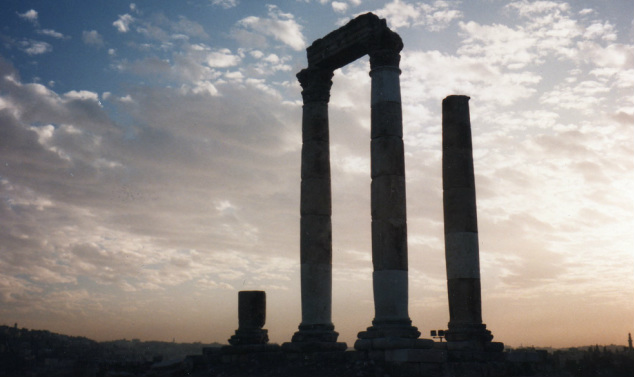Renaissance Man
Renaissance is a French word that means "rebirth" or "to be reborn." so literally translated a "Renaissance Man" is a "Reborn Man." These words send my mind down a rabbit trail that begins with Jesus' midnight conversation with Nicodemus and ends in the confusion caused by the various positive and pejorative uses of the modern term "born-again believer," but through its varied denotations and connotations this simple phrase takes on an astonishing depth of meaning.
I once used the term "renaissance man" to describe my father to my then fiance. I told her that he is a man I admire because of his constant yearning for new knowledge and skills: from devouring educational TV programs like Nature and Nova to attending conferences about personal financial management strategies, from keeping abreast of the latest developments in procedures and products in his profession to reading enough to acquire a better knowledge of Church History than some pastors. The educational buzz word for this is "life long learner:" someone who, like my father, is a giant sponge, soaking up new knowledge for their entire life.
The term also encompasses the idea of men who excel in markedly diverse fields of knowledge and skill, the sort of men after whom liberal arts colleges were modeled: da Vinci, Goethe, Thomas Jefferson, and dozens of other men whose interests and achievements were as varied as great. These are the sort of men whom I have chosen to pattern my life after, whom I have chosen to emulate. This blog reflects that choice. My interests in life are varied; I love spending time with and ministering to friends and family, I love playing with and teaching children, I love to read and to write responses to what I read, I love to write about the world around me and about my marvelous God who created it, I love to study His works through the reading of His Word and through the sciences, and I stand in equal wonder at the intricacies of language and chemistry, at the mysterious depths of the ocean and of the human heart.
Last but certainly not least, these two words reference a philosophy of a continual pursuit of perfection. For many of the men of history to whom this term has been applied, that pursuit of perfection sprung from the hubris of humanistic philosophy, but many of them, like myself, saw the pursuit of perfection as a duty and a privilege, the only fitting response to the gospel, the only course of action left to those whose gratitude to their Savior compelled them to strive always be of the utmost service to their Lord. This is the defining ethos of my life, to strive to show myself a man approved for good works, to hear my King tell me I have invested my time and talents well, to hear Him say, when I can no longer fight the good fight, "Well done, thy good and faithful servant. Enter into thy rest."
I once used the term "renaissance man" to describe my father to my then fiance. I told her that he is a man I admire because of his constant yearning for new knowledge and skills: from devouring educational TV programs like Nature and Nova to attending conferences about personal financial management strategies, from keeping abreast of the latest developments in procedures and products in his profession to reading enough to acquire a better knowledge of Church History than some pastors. The educational buzz word for this is "life long learner:" someone who, like my father, is a giant sponge, soaking up new knowledge for their entire life.
The term also encompasses the idea of men who excel in markedly diverse fields of knowledge and skill, the sort of men after whom liberal arts colleges were modeled: da Vinci, Goethe, Thomas Jefferson, and dozens of other men whose interests and achievements were as varied as great. These are the sort of men whom I have chosen to pattern my life after, whom I have chosen to emulate. This blog reflects that choice. My interests in life are varied; I love spending time with and ministering to friends and family, I love playing with and teaching children, I love to read and to write responses to what I read, I love to write about the world around me and about my marvelous God who created it, I love to study His works through the reading of His Word and through the sciences, and I stand in equal wonder at the intricacies of language and chemistry, at the mysterious depths of the ocean and of the human heart.
Last but certainly not least, these two words reference a philosophy of a continual pursuit of perfection. For many of the men of history to whom this term has been applied, that pursuit of perfection sprung from the hubris of humanistic philosophy, but many of them, like myself, saw the pursuit of perfection as a duty and a privilege, the only fitting response to the gospel, the only course of action left to those whose gratitude to their Savior compelled them to strive always be of the utmost service to their Lord. This is the defining ethos of my life, to strive to show myself a man approved for good works, to hear my King tell me I have invested my time and talents well, to hear Him say, when I can no longer fight the good fight, "Well done, thy good and faithful servant. Enter into thy rest."

